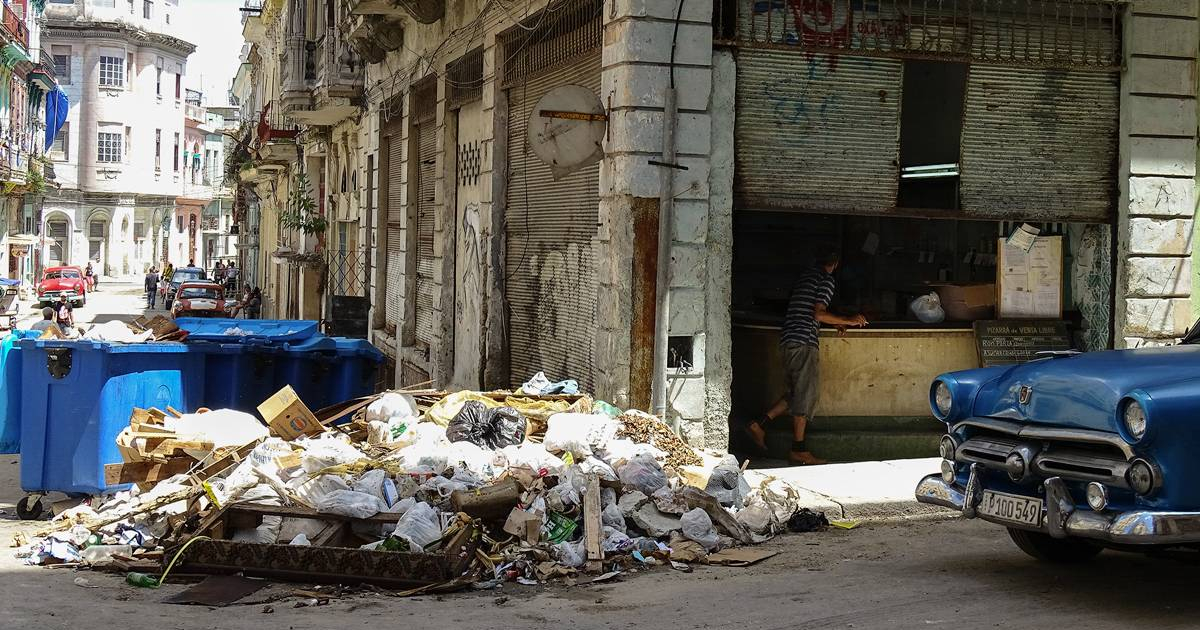
The Cuban government announced that it is seeking support from foreign investors to address the crisis in solid waste management in the country, particularly in Havana, where the increase in garbage threatens the health of thousands of people.
Granma reported that several foreign investors presented their alternatives to solve the garbage problem in the Comprehensive Waste Management System of Havana. The regime claims that there are more than ten foreign investment projects on this issue.
The Deputy Director of Investments and Development of the Provincial Director of Communal Services, Hermes Tomás del Toro Acevedo, said that most of these projects are aimed at generating electricity, utilizing gases, and recycling various materials, such as plastics and glass.
However, none of the projects are operational yet. While they advance in the presentation of ideas and the bureaucratic paperwork, garbage accumulates in the streets of Havana and other cities in the country.
A Japanese company proposed the installation of a waste management plant, where waste arrives unclassified, recyclable materials are recovered, and electric energy is produced. The foreign company would be responsible for the entire logistical chain.
A Mexican group proposes to manufacture furniture for tourism using raw materials from waste. This project is inspired by theories of the circular economy, which sounds good in theory but may not be what Cuba needs the most.
They would use the solid waste buried in the landfill on 100th Street, in the municipality of Marianao. In addition, they must extract, along with a Swiss cooperation agency, the methane to use it as fuel and to burn it in an environmentally friendly way. They would have a carbon credit granted by the United Nations.
From Argentina comes a project that turns waste with calorific value into bales, a biofuel. A Spanish company and a Hungarian company propose generating electricity from waste treatment, which would support production plants for construction materials and paper, respectively.
An Italian company would use the waste from Havana for recycling and small-scale energy supply.
The proposals are being evaluated by a "scientific group" consisting of specialists from a large number of Cuban institutions, among which are mentioned:
- Provincial Directorate of Foreign Trade, Foreign Investment
- Universities
- National Institute of Hydraulic Resources
- Ministry of Public Health
- Ministry of Science, Technology, and Environment
- Provincial Company of Community Hygiene.
The government itself acknowledged that open-air dumps have existed in the capital of the country since 1976. The largest ones are located in Marianao, El Cotorro, and Havana del Este. All of them are sources of pollution.
In April, a study by Cuba Siglo 21 stated that in Havana, the regime stops collecting the equivalent of three Olympic-sized swimming pools of garbage every day.
The capital has become a "critical hotspot of health insecurity" because the street-level dumps encourage the proliferation of rats and mosquitoes, dengue and leptospirosis, and cause urban fires due to methane gas production.
What do you think?
COMMENTFiled under: